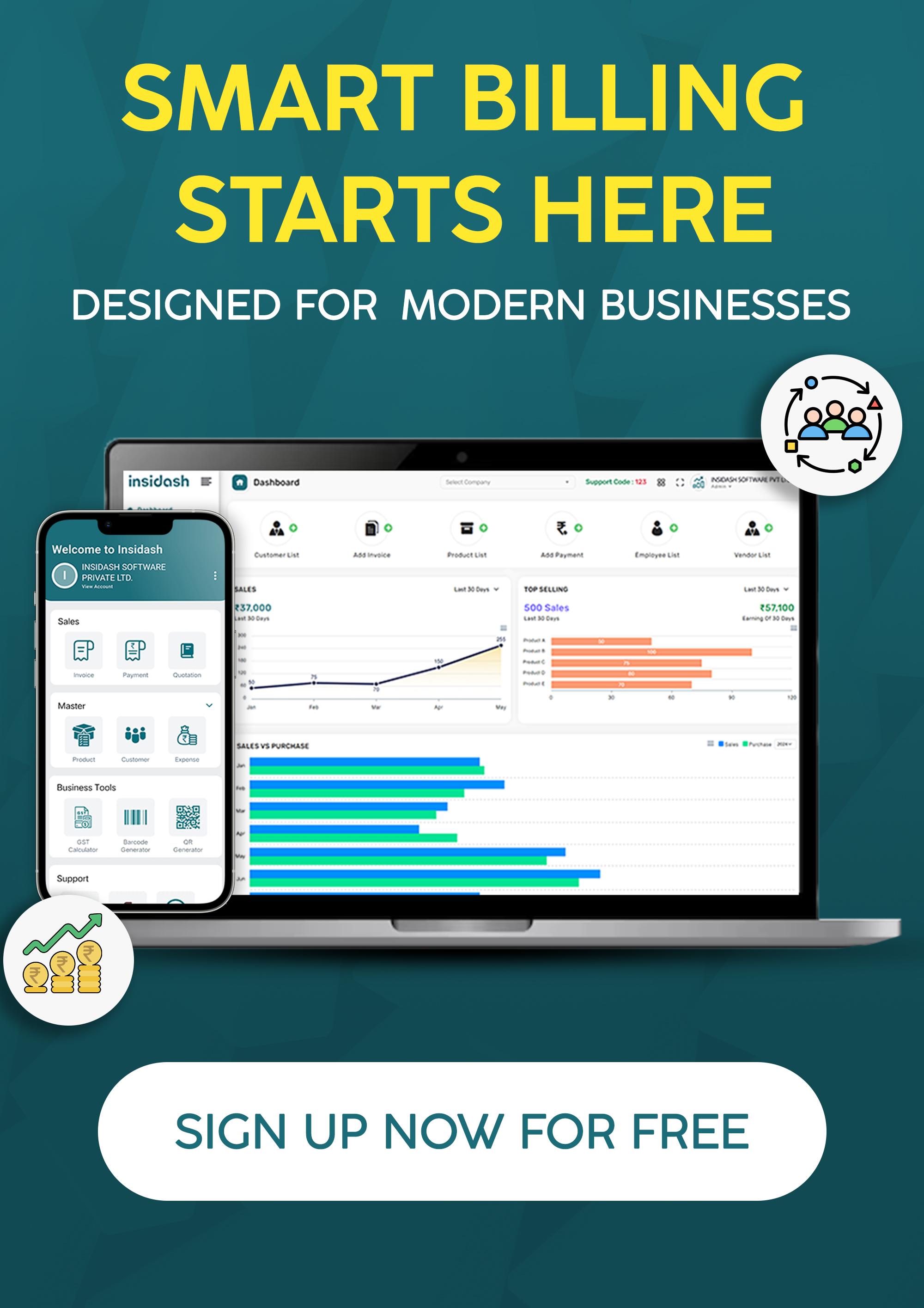Table of Contents1) Introduction 2) What is Billing Software 3) How Billing Software Is Beneficial for Your Business? 3.1. Customized Invoicing 3.2. Work Anytime & Anywhere 3.3. Tax Calculations 3.4. Defined Permissions & User Accounts 3.5. Real-Time Billing Section 3.6. Reporting & Analytics 3.7. Easy Integration 3.8. Data backup and retrieval 4) What Features You Should Have In Your Billing Software? 5) Conclusion |
|
Are you a small business owner ? As a business owner, you're constantly handling so many tasks at the same time which includes managing your billing. So, one tool that makes your life a whole lot easier is billing software. But sometimes if the software is not upto your requirements it can make your work even more difficult. But what exactly is billing software, how it is beneficial for you & your business, and what features should you look for? Let's break it down in this blog.
What is Billing Software?
Billing software or app is a tool built to simplify the process of generating and managing invoices, tracking payments, and handling other financial tasks related to your business. Instead of manually creating invoices and keeping track of payments on paper or spreadsheets, billing software automates these processes which saves time and reduces the chances of errors.
How Billing Software Is Beneficial for Your Business?
• Creates invoices and tracks payments automatically to help you save time and manual efforts.
• Reduces mistakes in calculations and data entry which helps to make invoicing more accurate.
• Sends payment reminders to customers which helps you to get paid on time.
• Keeps all billing records organized and easy to find, so you don’t have to manage paperwork & large piles of files.
• Lets you customize invoices and quotations, so they look professional and match your brand.
• Calculates taxes and generates reports automatically & helps you to file tax easier.
• Keeps your financial data safe with access controls, so only the right people can see it.
• Works well with other business tools & helps to reduce manual work and improves efficiency.
• Reduces workload, so you can focus more on growing your business.
• Gives real-time reports on your earnings and expenses & supports you to make smart financial decisions.
What Features You Should Have In Your Billing Software?
It is very important to know what features a software is providing to you before purchasing it & to decide whether it is suitable for your business type or not. So let’s look at some features which are essential for any business type to have in their billing software.
1. Customized Invoicing:
Every business is unique & has their own identity, so your billing software should allow you to customize your invoices to reflect your brand and include necessary details such as your logo, payment terms, and contact information.
2. Work Anytime & Anywhere:
In today's digital world, flexibility is the key to success. Your billing software should be accessible via mobile phone to let you access your financial data and create invoices from anywhere, whether you're in the office, at home, or on the go.
3. Tax Calculations:
Tax calculations can be complex & time consuming tasks while making invoices, but your billing software should handle them easily. It should be able to calculate taxes accurately based on the products or services you offer.
4. Defined Permissions & User Accounts:
If you have multiple employees handling your billing tasks, it's very important to have control over who can access your sensitive financial data. Your billing software should allow you to set defined permissions and create user accounts with different levels of access.
5. Real-Time Billing Section:
Waiting for payments can disturb your cash flow. Your billing software should include a real-time billing section that allows you to track outstanding invoices instantly and follow up with clients rapidly.
6. Reporting & Analytics:
Having access to detailed product & sales reports can provide valuable insights into your business's financial health. Look for software that offers dynamic reporting features to help you make smart decisions.
7. Easy Integration
Your billing software should easily integrate with other platforms your business uses, such as CRM systems, or payment gateways. Integration removes the need for manual data entry and makes sure that information flows smoothly between different systems.
8. Data backup and retrieval
Your billing software should have strong data backup features, such as regular backups to a secure server or cloud storage. It should also have easy retrieval options, so you can quickly recover your data in the event of a data loss or system failure.
Conclusion
In conclusion, the right billing software is important for the success of your small business. By prioritizing features such as security, customization, and accessibility, you can simplify your billing processes, save time and money, and ultimately focus on growing your business.
billing-software-features.jpg)
